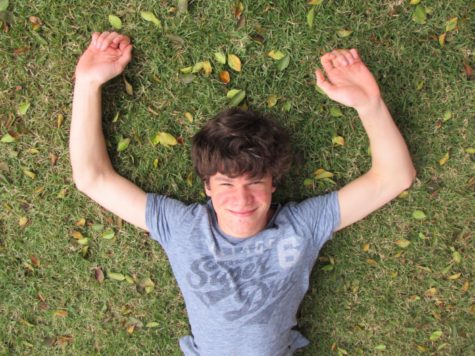Strategies for Thriving in the Online Learning Scene

Illustration by Malu Geyerhahn
Online learning has been an exhausting experience for students worldwide and unfortunately returning to this model is a constant possibility. Due to the distractions of attending school via Zoom, it is quite difficult for students to engage as thoroughly as they might in a normal classroom. Opening new tabs, silently looking at the TV while playing video games, chatting on the phone with friends, and other similar distractions are all negative habits that a lot of us have developed during the online learning experience. Now that school has gone back to being somewhat the way it used to be, it is imperative that students work on fixing these habits. Changing bad habits for good ones is not an easy task. You must first understand what your goals are; how you will achieve them; and how you will actually uphold these habits once you actually have them, since losing good habits is extremely easy, especially if you are unmotivated and if you don’t have the willpower to maintain them. With that, below are some habits which have been proven to be beneficial to the point that every online student should strive to develop and maintain.
Starting the day off on the right foot is one of the most important parts of having a successful and productive day. The first step of a successful day is to quickly get up as soon as you wake up. By doing so, you have involuntarily resisted the urge of picking up your phone and watching videos on YouTube and on other social media platforms. After that, make your bed! The act of making your bed is extremely important since it gives a sense of self-pride and it is a good way to build the momentum to start other tasks such as the essay you have waited so long to start and the long math homework due in a couple of days. As stated by Admiral William H. McRaven in his speech given to the University of Texas, “if you want to change the world, start off by making your bed.” In his speech, McRaven also highlights the importance of doing the little things “right”: making your bed, folding your clothes, folding your towels, and organizing your room are all small, seemingly mundane tasks which can actually have great value to your day-to-day life. “If you can’t do the little things right, you’ll never be able to do the big things right.” Think of the “little things” as being a warm-up for the “bigger things.” By doing the small things such as making your bed, you will generate motivation and encouragement to do another task, which will generate more motivation and encouragement to do another, and another, and so on. Making your bed should be an essential part of your day, especially for students who struggle with procrastination – it requires little effort; removes workload from the previous person tasked with making your bed; and also comes with great benefits for a productive academic life.
You might be asking, “making your bed is great and all, but how will I eliminate my bad habits and how will I focus more in school?” This requires a bit more understanding of your own personal psychology and of the environment around you to fully make use of the following strategies. According to James Clear in “Atomic Habits,” the “first step to eliminating any bad habit is to make it invisible”. Meaning, if you have trouble with being on your phone, playing video games, or with distracting tabs while in class, you should place said objects in a location where you can’t see, hear, smell or feel them, as just the sound of a phone’s vibration is enough to draw your attention away from your current task; therefore, you should leave these objects in an unconventional place to reach. For phones, it is much harder to leave it in a hard-to-reach place since we heavily rely on them. By just leaving it behind your computer screen, you will drastically feel less need to check on it and, consequently, exhaust your willpower far less, making it easier to not check on your phone once school ends. By hiding your phone, your console, or even your PC, you are also creating a distinction between what is your workplace and what is your restplace. It is far easier to think about and start to play a video game during class if the console is right next to you than if the console is on the top shelf of a wardrobe on the other side of your apartment. This simple habit can easily define an excellent academic school year from a poor one.
Although these are all habits suggested by professionals, ultimately it all comes down to your own understanding of how you think, what distracts you the most, and which strategies work best for you. The strategies stated above are not guaranteed to grant you 6s and 7s, but they will set you up for your own development of strategies best fit for you. Hopefully these will facilitate the elimination of bad habits and the creation of better ones. Hopefully, with these strategies in mind, we will all strive towards a better school year where we may all academically and personally thrive.
Sources:

Joining The Talon this year as a Features writer, Francisco is happy to be given an opportunity to explore his passion for writing without the constraints...








